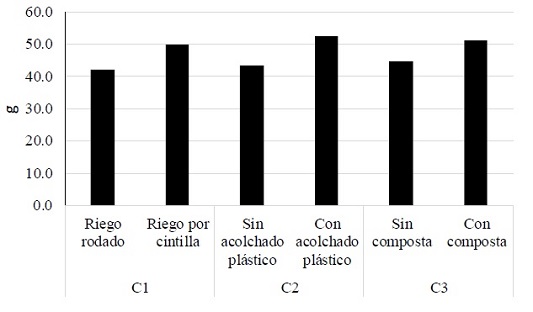Concentration and transfer of heavy metals in lettuce (Lactuca sativa L.) irrigated with treated
DOI:
https://doi.org/10.28940/terra.v40i0.1045Keywords:
manure, mulch, trace elements, vegetables, irrigationAbstract
Heavy metals can be found in agricultural soils, absorbed and accumulated by crops, representing a public health risk. This research aimed to study the influence of agricultural practices on the concentration of heavy metals cadmium (Cd), chromium (Cr), copper (Cu), lead (Pb), and zinc (Zn) in lettuce irrigated with treated water and determined the level of risk to human health. Four treatments were evaluated: (1) Flood irrigation without mulch and compost; (2) Drip irrigation without mulching with compost; (3) Drip irrigation with mulch without compost; (4) Drip irrigation with mulch and compost. The detected concentrations of Cd, Cr, Pb and Zn in the edible part of lettuce exceeded the maximum permissible levels in vegetables established by the European Union reference. In the case of Cd, it showed a high capacity to be transferred from the soil to the plant, which represents an even greater health risk. The agronomic practices of drip irrigation, using water from a wastewater treatment plant, plastic mulch and organic fertilizer slightly reduce the concentration and transfer rate of Cd, Cr, Cu, Pb and Zn in the edible part of lettuce, promoting an increase in biomass production, which in turn affects the dilution of heavy metals in plant tissues.
Downloads
Publication Facts
Reviewer profiles N/A
Author statements
- Academic society
- Terra Latinoamericana
- Publisher
- Mexican Society of Soil Science, C.A.

















